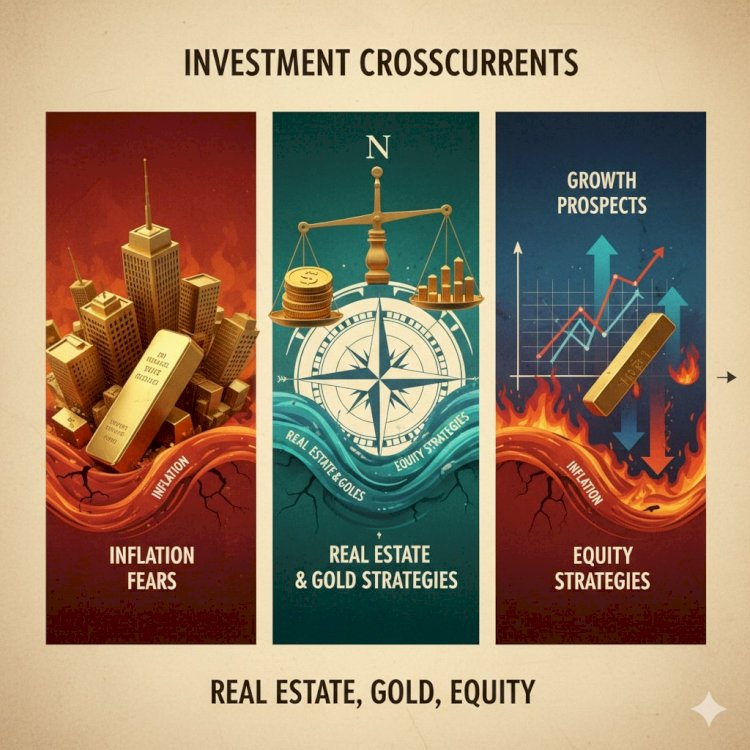Investment Crosscurrents: How Inflation Fears are Reshaping Real Estate, Gold, and Equity Strategies

GLOBAL ECONOMY — The global financial landscape is entering a phase of deep recalibration, driven primarily by persistent inflation and high interest rates. This environment is forcing investors to aggressively reassess risk across major asset classes, leading to distinct and sometimes contradictory trends in real estate, gold, and public markets.
Real Estate: The Commercial Crunch vs. Residential Resilience
The real estate sector is exhibiting a sharp contrast between its segments. The Commercial Real Estate (CRE) market, particularly for office properties, faces significant stress. Factors like widespread remote work and elevated financing costs have led to falling valuations and a downturn in transaction volumes across major global cities. Developers and asset managers are focused on conversion projects and stabilizing occupancy rates.
In stark opposition, the residential property sector, while constrained by high mortgage rates, has proved more durable. Demand for housing in many regions remains structurally strong, often bolstered by demographic trends and low pre-existing inventory. This imbalance has allowed home prices to remain firm in many desirable markets, creating a bifurcated market where residential assets are seen as a better hedge against local inflation than commercial holdings.
Gold's Enduring Appeal as a Crisis Hedge
Gold is shining brightly as the preferred safe haven asset. Its price is being propelled by a dual engine: first, the ongoing geopolitical uncertainty and second, its historical role as an inflation hedge. Investors are treating the precious metal as a reliable store of value when confidence in fiat currencies and government bonds wanes. Central banks, particularly in emerging economies, have been consistently increasing their gold reserves, providing a strong demand floor that reinforces the metal's status as a stable foundation during market turmoil.
Equity Markets and the Pursuit of Quality
In the broader investment world, the focus has shifted from high-growth speculation to quality and resilience. Equity markets are trading cautiously, with investors rewarding companies that possess strong balance sheets, predictable cash flows, and defensible market positions. High-valuation tech sectors, particularly those linked to Artificial Intelligence (AI), continue to drive market performance, often acting as a narrow engine for global returns. Meanwhile, traditional cyclical sectors are grappling with uneven global economic growth. The prevailing strategy emphasizes portfolio diversification and active management to navigate a challenging environment where the cost of capital is high and economic outlooks remain divergent across continents.

 content-team
content-team 


















